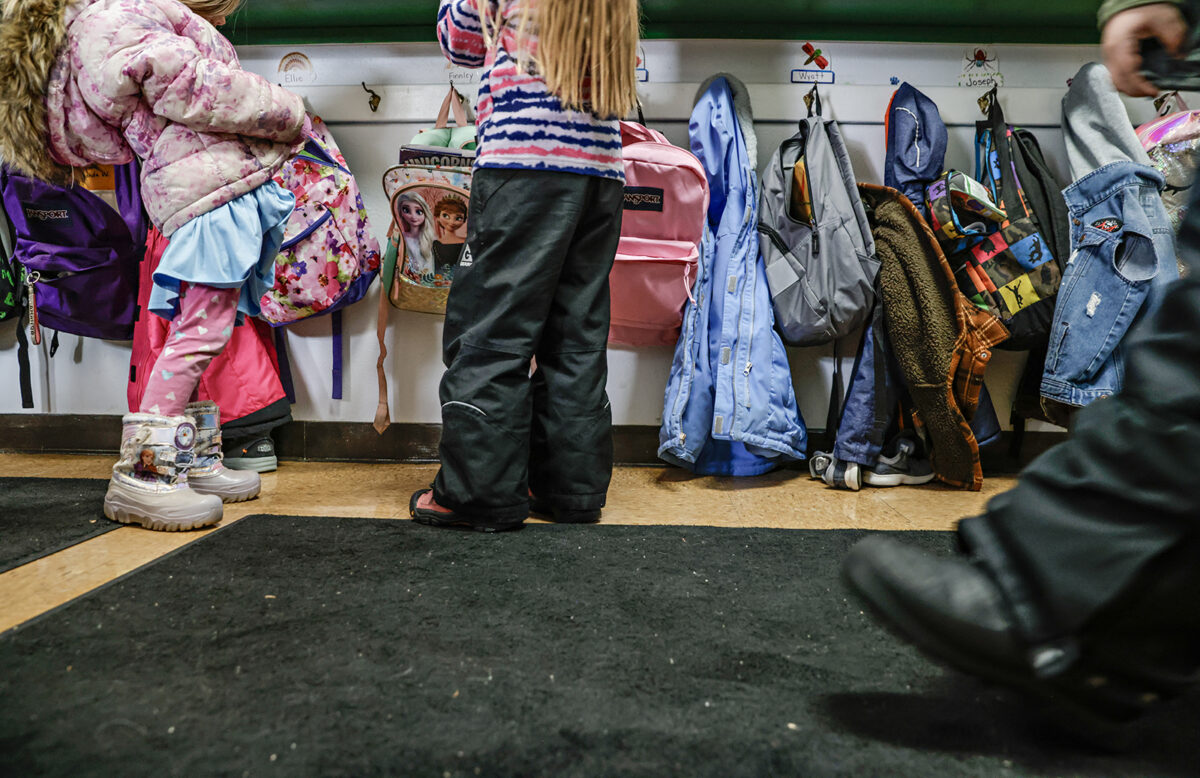Community Choice Schools Commission Forges Ahead
The state commission has raised over $300,000, largely from conservative policy groups, as it works to implement Montana’s first “community choice schools” amid ongoing litigation. The charter schools would receive public funding while being exempt from the state constitution’s educational requirements.
By Denali Sagner
During a Dec. 17 meeting of Montana’s Community Choice Schools Commission, chair Trish Schreiber introduced a quote from conservative economist Milton Friedman.
“Only a crisis – actual or perceived – produces real change,” Schreiber read to the commission, quoting Friedman. “When that crisis occurs, the actions that are taken depend on the ideas that are lying around. That, I believe, is our basic function: to develop alternatives to existing policies, to keep them alive and available until the politically impossible becomes the politically inevitable.”
For Schreiber and her fellow commission members, the work of implementing Montana’s Community Choice Schools is, currently, the politically impossible, as the commission works within the legal confines of a September 2023 injunction that blocked its nine members from seeking applications for or approving any charter schools.
Last fall, Lewis and Clark County District Court Judge Chris Abbott temporarily blocked the state from executing large parts of House Bill 562, the law that created Montana’s community choice schools, a set of charter schools that would be able to access public funding while being free from the constitutional guidelines that regulate Montana’s public schools. The injunction arrived after a group of public education advocates sued the state to block the law, citing numerous educational equity and constitutionality concerns.
While Abbott in his injunction allowed the commission to meet, raise funds and adopt bylaws, he barred its members from considering charter school applications, citing concerns that the law skirted provisions of the Montana Constitution that pertain to elections. Abbott will preside over oral arguments at a hearing next month.
Despite legal roadblocks, the commission has marched forward, bringing in over $300,000 in grants and private donations and creating a framework through which it may one day evaluate and approve community choice schools. Its work thus far has been powered largely by conservative think tanks and “school choice” advocates who hope to fight Abbott’s injunction and keep the door open for community choice charter schools in Montana.
Speaking to the Legislative Education Interim Budget Committee on Dec. 16, Schreiber, a Powell County resident and educational therapist, said the commission has “accomplished a lot of work preparing the state for the eventual chartering of community choice schools.” Commission members have met nine times since October 2023, completed five state trainings and examined data that shows the “undeniable success of charter schools nationwide,” Schreiber said.
The Community Choice Schools Commission is separate from the public charter school system created under House Bill 549, which authorized the establishment of the state’s first in-district charter programs last year, including two in Kalispell.
Over the course of the nine meetings, the nine-member Community Choice Schools Commission has met with representatives from the National Charter School Institute, National Alliance of Public Charter Schools and the Johns Hopkins University Institute for Education Policy. It has approved drafts for community choice school applications and contracts, as well as a performance framework for school evaluation. It has formed subcommittees, applied for grants and worked with a steering committee made up of educators and charter schools advocates from across the country.
The commission does not receive funding from the state, and instead must raise its own funds to support meetings, legal expenses and staff. According to commission treasurer Cathy Kincheloe, the commission has received $2,500 from the Montana-based Frontier Institute, where Schreiber is a senior education fellow and her husband, Matthew Schreiber, is the director.
It recently received a $300,000 grant from the Wisconsin-based Bradley Foundation, a conservative charitable foundation, to hire a staff member to help build application, contract and oversight protocols.
Regarding the Bradley Foundation’s grant, Schreiber said during Tuesday’s commission meeting, “It’s the hope of the Bradley Foundation that, within this 12-month period of the grant, that we can do whatever we need to do to fully implement this law, given the understanding that the state might not be able to keep this law. They were willing to take that risk. They believed in our mission and our vision so much that they were willing to do that.”

The commission has additionally received $25,000 from the Educational Promise Foundation, an organization with a San Francisco address that lists both Patricia and Matthew Schreiber as officers, according to tax records. Matthew Schreiber was paid $136,507 by the foundation in 2023 for investment counsel services.
The commission, to date, has spent $2,275 on legal fees and $4,285 on meeting expenses.
During Tuesday’s meeting, commission members elected officers for the upcoming year, created subcommittees and evaluated a draft application rubric for evaluating choice schools. While the draft rubric gives commission members the opportunity to rate programs on a number of factors, including proposed administration, curriculum and location, Schreiber emphasized that House Bill 562 “gives the freedom that they do not have to follow the state standards or anything that’s in Title 20.”
Title 20 of the Montana Constitution outlines regulations for public schools, such as teacher certification, health and safety guidelines and curriculum requirements.
“There’s no one way to school, and I think we need to prepare ourselves to see a variety of applications,” Schreiber said. “This is why we want seven members with strong opinions, because it’s our job to deliberate about this and to convince each other that we’re right.”
Ahead of a legal resolution, the commission’s work will continue in the new year. Its members on Tuesday voted to reconvene its fundraising and policymaking subcommittees, as well as create a subcommittee for special education considerations.
The Community Choice Schools Commission is set to meet again on March 4, 2025.